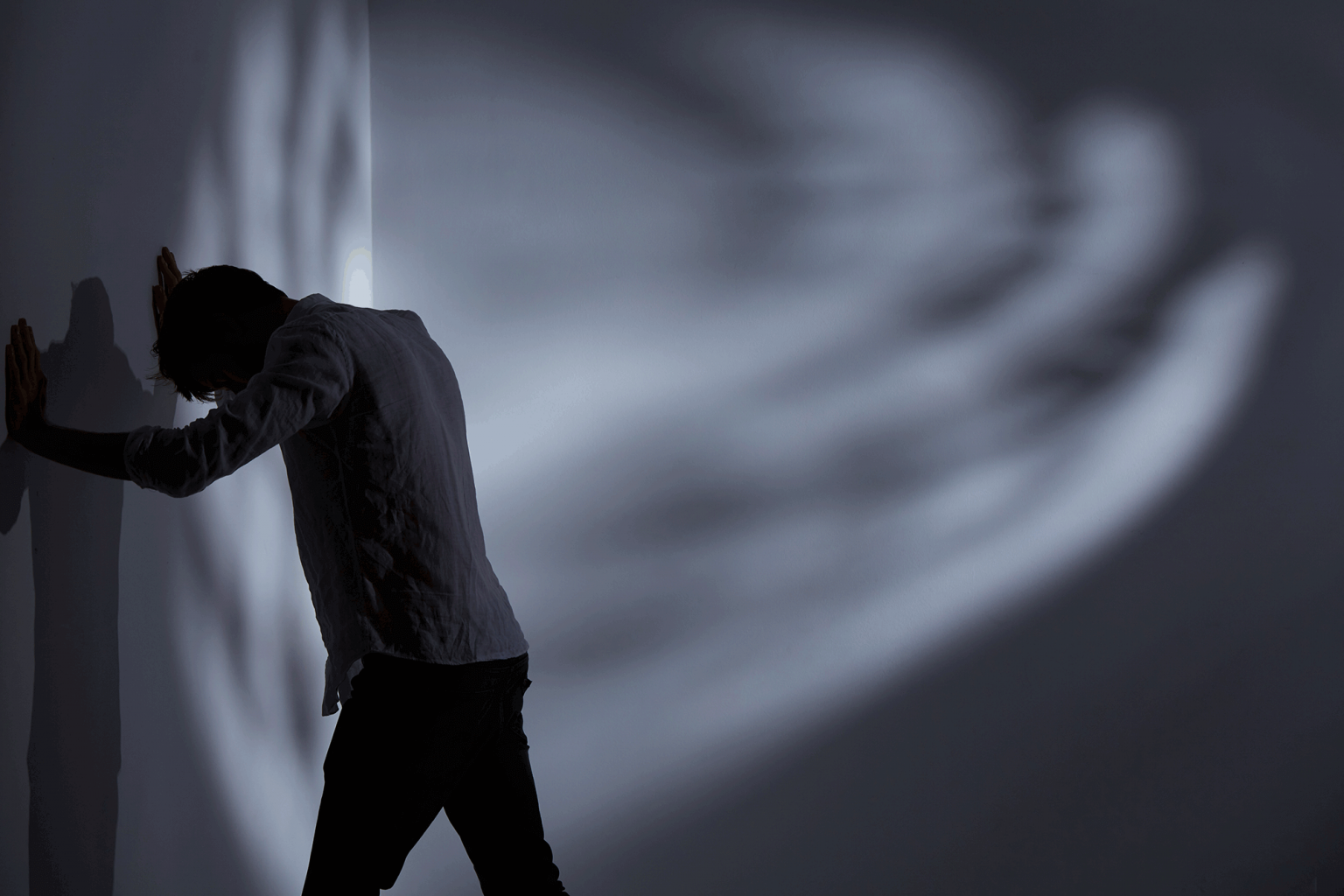Bipolar Disorder & Cyclothymia Cognitive-Behavioral Therapy Counseling Services at Reconnect Relationship™, in Beverly Hills & Laguna Beach, CA
Bipolar disorder, also known as manic depression is a condition in which you experience intense mood swings. One moment, you’re happy and ecstatic, you become extremely hopeful and get an exaggerated sense of self-confidence and invincibility. This sense of euphoria can lead to reckless decision making, extreme impulsivity and recklessness and as well as overspending and/or hypersexuality, irritability, delusions, and even hearing voices in more extreme cases of the disorder.
While at the other moment, when you are sad, you become so depressed that you start feeling hopeless and lose interest in all activities. It can even sometimes cause thoughts about death and suicide, even mood-congruent hallucinations. While the moods of people with bipolar disorder can be triggered by outside variables, individuals with bipolar disorder also often become manic or depressed for no obvious reason. In contrast, for the majority of people, moodiness is related to an external event, an unusually stressful period, or even due to hormonal changes.
You can think of Bipolar disorder as having extreme highs and lows. These drastic fluctuations in mood can make it extremely difficult for us to live our day to day lives. Let’s take a look at some general symptoms of Bipolar disorder that can help you clearly identify between regular mood swings or bipolar disorder.
What are the symptoms of Bipolar Disorder and Cyclothymia?
In Bipolar disorder, the set of highs and lows you experience don’t follow a specific pattern. It could be that you’re in the same state of mood for a long time before you switch to the opposite state. It also depends on person to person, but generally, you experience the symptoms in the following way in varying degrees and frequency:
Symptoms of Bipolar Mania Disorder:
- Pressured speech, racing thoughts and poor thinking overall
- Increased energy levels and markedly less need for sleeping w/o feeling tired
- Excessive excitement, hopefulness, and happiness
- Substance abuse to calm down, and at other times perhaps to induce euphoria/mania
- Taking extreme risks without considering the danger involved, something you would not even consider under normal circumstances
- Making exaggerated, unrealistic plans or claims
- Becoming impulsive, reckless as well as quite restless
- Suddenly changing from being happy to irritable and extremely angry unnecessarily
- Abnormally jumpy or upbeat.
- Taking unusual and harmful sexual or financial risks
- Going on shopping sprees and completely emptying your bank account and maxing out all your credit cards
Symptoms of Bipolar Depression Disorder:
- Depressed mood most of the day, almost every day
- Suddenly feeling out of energy
- Losing interest in things you once enjoyed
- Unwanted repeating thoughts
- Uncontrollable crying
- Diminished ability to think or concentrate, or persistent indecisiveness or taking any kind of constructive and sustained goal-oriented action
- Appetite changes that cause significant weight loss or weight gain
- Not being able to enjoy even your most favorite things
- Feeling hopelessness, worthlessness or excessive guilt
- Constant thoughts of death or thinking about attempting suicide
Your symptoms will be extreme and sometimes uncontrollable, which may trigger hospitalization from spinning out of control or alternatively due to suicidal ideation or attempt.
It is also important to mention that bipolar disorder is a mental illness which is comprised of three related yet different conditions, especially in intensity, duration and frequency – bipolar I, bipolar II, and cyclothymic disorder.
- Bipolar I disorder is a manic-depressive disorder that can exist both with and without psychotic episodes
- Bipolar II disorder consists of depressive and manic episodes which alternate and are typically less severe and do not inhibit function
- Cyclothymic disorder is a cyclic disorder that causes brief episodes of hypomania and depression
If you’re not quite sure if your mood swings are normal or could be a result of experiencing cyclothymia or bipolar disorder symptoms, you may choose to begin a mood diary using an app such as “Daylio” to assist you maintaining track and monitoring your mood changes and fluctuations, as well as tracking menstrual cycles for women. Psychologists and therapists suggest that this can be a therapeutic activity. Doing so can assist you in figuring out whether or not certain events or situations are in fact the cause of your mood swings or if they seem to randomly happen without cause.
Effective Treatments of Bipolar Disorder & Cyclothymia in Beverly Hills and Laguna Beach, CA:
If you suspect that you might have bipolar disorder or cyclothymia, then instead of trial and error, the best approach is to seek help right away. Both bipolar disorder or Cyclothymia, although less so, can be intimidating and complex conditions to live and deal with both for the person with the disorder as well as those around them and especially their family.
However, one should not lose hope as there are several approaches available that can help you effectively cope with symptoms and gain better control over your lives. Let’s take a look at some effective treatments for dipolar disorder and cyclothymia.
Treatments for bipolar disorder and cyclothymia which follow a set of guidelines and when used in conjunction, can produce optimal outcomes. Psychotherapy, medications and consistent lifestyle changes can provide lasting impact and help you significantly improve your condition over your lifetime and keep you more stable, a worthy goal indeed.
The Importance of Medications in the Treatment of Bipolar Disorder & Cyclothymia:
Often the first treatment you start with to stabilize you is medications and is a lifelong commitment for those suffering from bipolar disorder. Medications can be like a pair of eyeglasses with the correct prescription. Bipolar disorder can truly and significantly distort your reality and make your world feel much more intense and unsafe than it actually is.
The good news is that medications can help you see things more clearly again and make more responsible and prudent decisions instead of running out into traffic naked for example because you think you’re a superhero with special powers. Medications won’t cure you completely, but they will significantly help you gain better control over your mood, impulsivity and racing thoughts.
You are very likely to get mood stabilizers medications which are likely to prevent or minimize both mania and depression episodes. This way, your mood does not negatively interfere with your work, thinking or social life and especially your family and those you cared about most. Some common mood stabilizers include Carbamazepine, Lithium and Valproic Acid, etc. All of these drugs tend to improve and stabilize specific conditions such as mania, depression, guilt and sense of hopelessness, etc.
Other than Mood stabilizers, some medicines for Bipolar Disorder have also been approved by the FDA. Fluoxetine combined with Olanzapine and Quetiapine Fumarate are sometimes more appropriate. Please be sure to consult with your psychiatrist who specializes in dealing with bipolar disorder, rather going to your general practitioner or family doctor who may be well intentioned yet may not have the appropriate knowledge and experience to deal with a complex and challenging illness such as bipolar disorder.
Which medicine works best totally depends on the person’s chemical makeup. It is not uncommon that your doctor will probably try several medications in order to find the medicine which works best for you and your system. It’s like finding the right key for your lock.
Cognitive-Behavioral Therapy (CBT) as well as Additional Types of Psychotherapy Treatment Approaches for Bipolar Disorder and Cyclothymia in Beverly Hills and Laguna Beach, CA
Medications alone don’t work that well. Combined with therapy, they can have amazing benefits. Psychotherapy aims at how we think and how changing our thinking patterns can help us identify our biased beliefs and have a more grip on our situation. Here’s a rundown of some famous psychotherapy treatments that can be beneficial.
Cognitive-Behavioral Therapy (CBT) involves trying to change and improve your patterns of thinking. It teaches you coping skills and teaches you how you can deal with difficult situations and how you can calm yourself.
Interpersonal and Social Rhythm Therapy (IPSRT) mainly focuses on how to reduce disruptions in social situations, improve your medication adherence and manage stressful events in a better way. It helps understand what worsens people’s conditions and what triggers their stress, and of course, how to deal with it.
Family-Focused Therapy helps family members get educated and recognize patterns of Bipolar disorder to help understand better. It helps instruct about treatment, medications, recognizing patterns and dealing with a Bipolar Family member more effectively.
Necessary Life Style Changes for Bipolar Disorder and Cyclothymia Stabilization and Improvement
Taking care of yourself is the key to managing the symptoms of Bipolar Disorder. Living a healthy life and developing a consistent routine can help control mania and depression better.
Try to observe your life and see what damaging habits you need to avoid. Consider the following:
- Get a regular and proper amount of sleep each day, weekends included
- Eat a healthy and nutritious diet
- Limit your stress and see how you can relax better
- Take some time for yourself and engage in pleasurable activities and hobbies
- Pay attention to your relationships and develop better connections
- Be consistent with your treatments and take your medications daily
- Keep a mood diary and see what improves your mood and figure out patterns
- Know your triggers and warning signs for intense moods so you can cope better
- Stay positive. Read or get influenced by uplifting content
- Join a support group so you can relate with others and share your experience
Conclusion for Bipolar Disorder & Cyclothymia Treatment
Bipolar Disorder is a serious condition and can cause many problems in your life. If you suspect that you have some symptoms of Bipolar disorder, then reaching out and getting professional help can turn out to be the one big step you take towards improving your condition and living a better life.
Receiving Bipolar Disorder & Cyclothymia Counseling Services at Reconnect Relationship™ Therapy, in Beverly Hills & Laguna Beach, CA
Reconnect Relationship’s network includes specialist therapists and psychiatry referrals offering bipolar disorder and cyclothymia counseling in Beverly Hills and Laguna Beach, CA.
Call us for a chat to see how we can assist you with improving your bipolar disorder and cyclothymia management or someone you know who needs some help and support, or complete our Drop Us A Line form to make an appointment.
 ARE YOU A JOURNALIST WRITING ABOUT Bipolar Disorder & Cyclothymia Cognitive-Behavioral Therapy?
ARE YOU A JOURNALIST WRITING ABOUT Bipolar Disorder & Cyclothymia Cognitive-Behavioral Therapy?
If you are a journalist writing about Bipolar Disorder & Cyclothymia Cognitive-Behavioral Therapy, do get in touch – we may be able to comment or provide a pull quote from a professional therapist.




